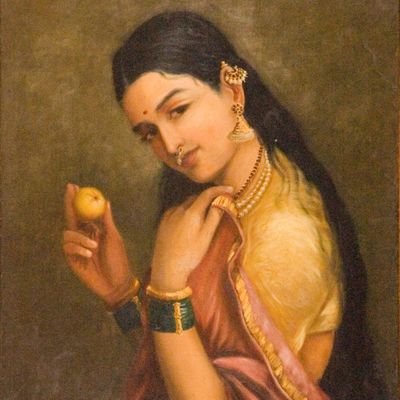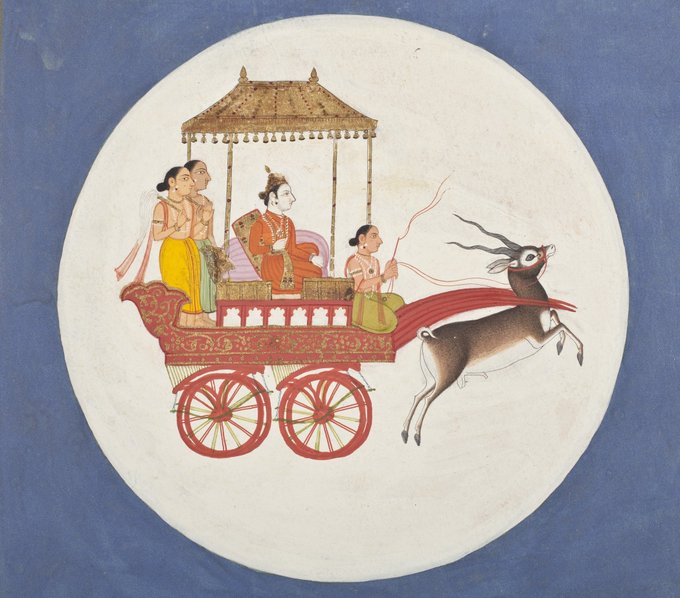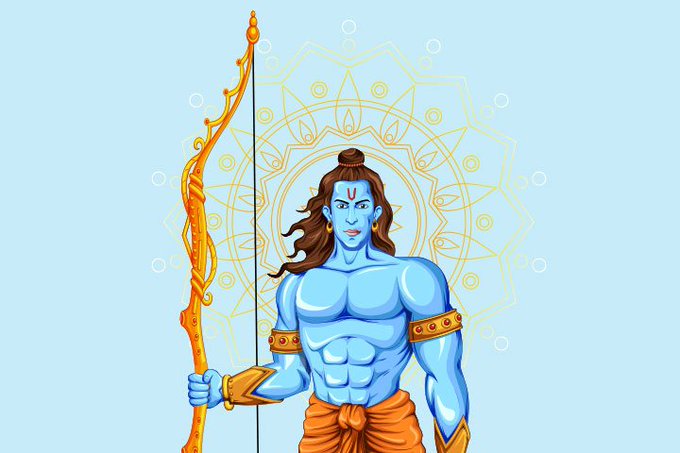There is enough historical evidence by now that Indians since the days of the Indus Valley have indulged in dishes made with meat and poultry: zebu cattle (humped cattle), gaur(Indian bison), sheep, goat, turtle, ghariyal (a crocodile-like reptile), fish fowl and game.
Read more
British officials put intense pressure on the rulers of the princely states to outlaw sati, as well. In 1861, Queen Victoria issued a proclamation banning sati throughout her domain in India. Nepal officially banned it in 1920.
Today, India's Prevention of Sati Act (1987) makes.
#Sati/suttee is the ancient Indian and Nepalese practice, examples also occurred in other traditions from as far afield as Russia, Vietnam, and Fiji.
The word "sati"comes from the feminine present participle of the Sanskrit word asti, meaning "she is true/pure." Read this thread
The Soma Mandala in the Rigveda mentions Soma as a ritual drink as being of importance among the early Indo-Iranians
-Chandra,The Moon God;Folio from a Book of Dreams, Opaque watercolor, gold, and ink on paper,#India,#Rajasthan,#Mewar,#Udaipur,1700-172
@monidipadey
@OmTheReality
The Indian 5-rupee note is the 2nd smallest Indian note in circulation. The #RBI has introduced the 5 ₹ banknote in the Mahatma Gandhi Series since 1996.
Frontal part shows the #fatherofnation Gandhi back side shows the #Farmer with #tractor
#farmersrprotest #FarmerBill2020
Between 4 and 9 December 1882 Vincent wrote to his brother Theo 📝: "Almost no one knows that the secret of beautiful work is to a large extent good faith and sincere feeling."
🌻 Vincent van Gogh, Worn Out (1882) Van Gogh Museum
Courtesy :- Vincent van Gogh
Attacked more than once, the building has been converted into a masjid’ – Henry Cousens
On #InternationalMensDay2020 let's meet Lord Rama,who have the 5 ‘heroic’ qualities
Tyagavira = famous for his sacrifice
Dayavira = famous for his compassion
Vidyavira = famous for his wisdom
Parakramavira = famous for his valour
Dharmavira = famous for his righteousness
-Kubera, the god of wealth and guardian of the north, riding on a horse
In Buddhism, he is known as Vaisravana, the patronymic used of the Hindu Kubera and is also equated with Pañcika, while in Jainism, he is known as Sarvanubhuti.
-Gouache on watermarked paper, ca. 1825, V&A













